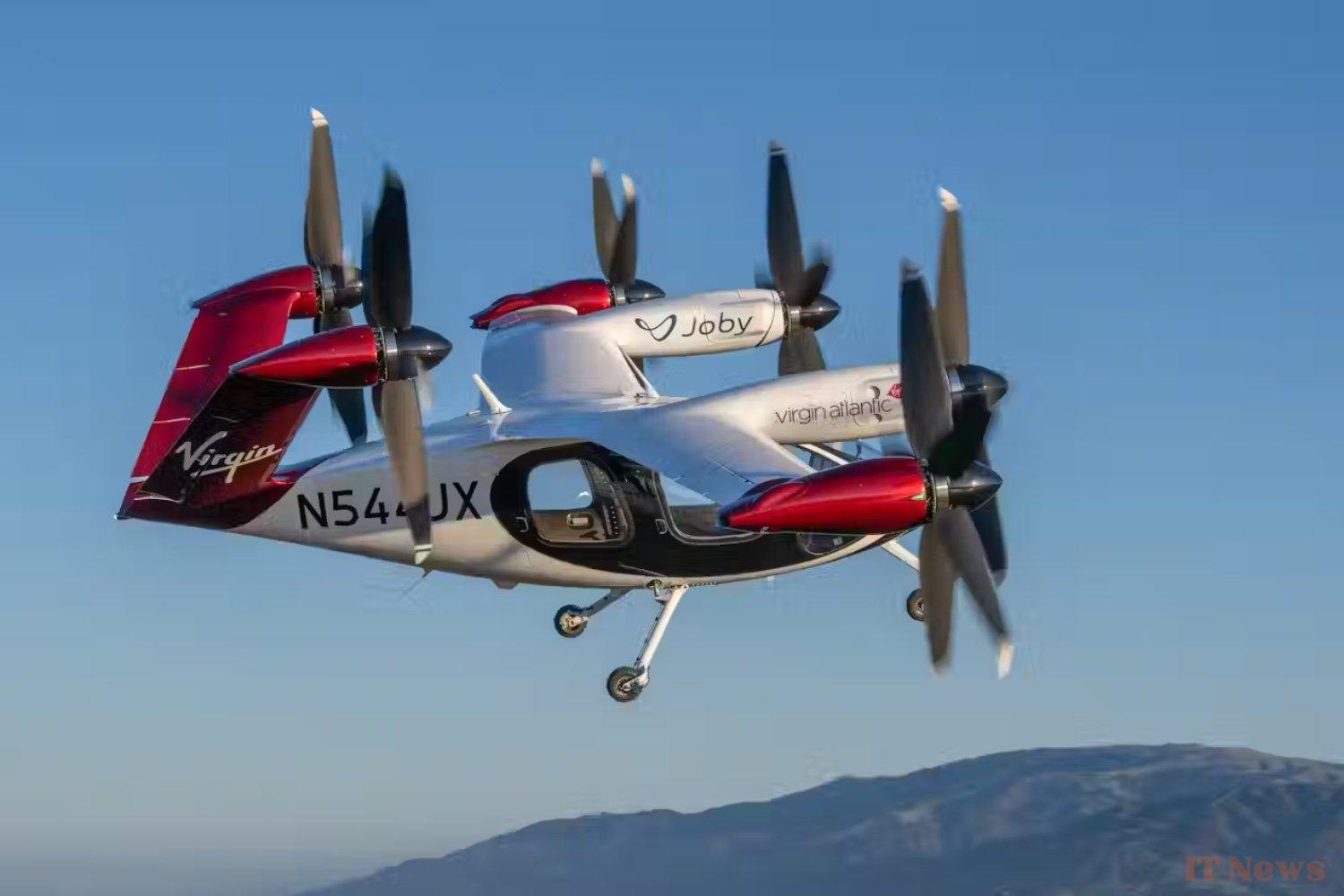Joby Aviation, a company specializing in electric vertical takeoff and landing (eVTOL) aircraft, is pursuing its ambition to deploy flying taxis in several countries. After the United Arab Emirates and the United States, the startup is partnering with Virgin Atlantic to introduce its service in the United Kingdom.
Flying taxis seeking the green light
For now, no specific launch date has been announced. Joby plans to first test its aircraft in Dubai by the end of 2024 or early 2025 before gradually expanding into other markets. In the United States, where the company hoped to begin commercial service in New York or Los Angeles this year, the schedule could be pushed back due to pending certifications from the Federal Aviation Administration (FAA). Similarly, in the United Kingdom, the Authority The Civil Aviation Authority (CAA) still needs to approve the aircraft's use before they are put into service.
The agreement between Joby and Virgin is part of a broader partnership with Delta Airlines, which owns approximately 49% of Virgin Atlantic. Through this alliance, Joby becomes Virgin's exclusive partner for the distribution of these short-haul flights. The idea is to integrate the flying taxis into the existing air network, notably connecting Virgin Atlantic's hubs at London Heathrow and Manchester.
Passengers will be able to book their journeys via the Virgin Atlantic app and website, just as they would for a traditional flight. The aircraft designed by Joby can carry a pilot and four passengers, with a top speed of 320 km/h. In practical terms, a flight between Manchester and Leeds could take just 15 minutes, compared to around an hour by road. A journey between Heathrow and the Canary Wharf financial district would take just eight minutes, compared to 80 by car.
Joby Aviation is not alone in this niche. Other companies, such as Archer Aviation, are also developing similar services and forming partnerships with airlines. Archer is working with United Airlines and Southwest, among others.
While some airlines are investing directly in these startups, this is not the case for Virgin Atlantic, which does not plan to finance Joby as part of this agreement. However, Virgin is committed to promoting the service, working with authorities to facilitate its integration, and supporting the development of takeoff and landing infrastructure.
With faster, zero-emission journeys, Joby and Virgin are banking on a new alternative to traditional transportation. The two partners must now demonstrate that the adoption of the service will follow a trajectory as rapid as that of the aircraft themselves.



0 Comments